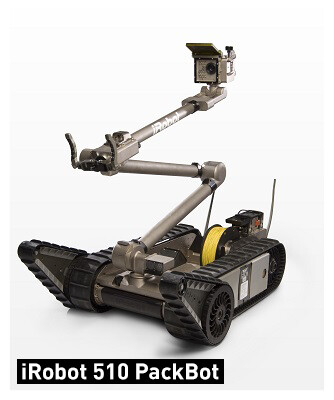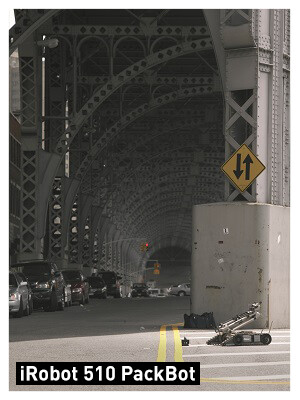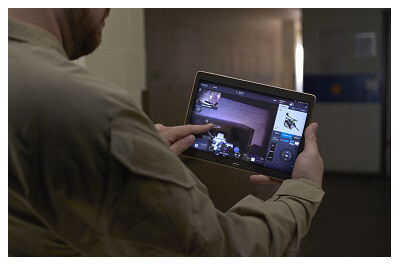Member Spotlight: iRobot
Just outside of Boston is where you’ll find iRobot. A Massachusetts Institute of Technology (MIT) vision turned global robotics company in just 25 years. We recently sat down with Thomas Phelps, Director of Robotic Products, Defense and Security Business Unit.
 Can you tell me a little bit about iRobot’s history?
Can you tell me a little bit about iRobot’s history?
We started out with research robots and in the late 1990s early 2000s we transitioned into commercial products such as the Roomba, robotic vacuum cleaner. In terms of our defense and security robots, the PackBot was first used after 9/11. iRobot sent a team of engineers and robots to the World Trade Center complex to help look for survivors. It was the first time robots had been deployed for search and rescue. It started to build a reputation of how these robots could be effective and help provide assistance in dangerous environments. They are now used by bomb squads and tactical teams to help keep people safe.
How did your company help out with Fukushima?
After the Tsunami in Fukushima we sent in a robot to do radiological monitoring and assess the inside of the reactor buildings after the meltdown. It was our first exposure in working with nuclear power companies. We equipped the robots with vacuums so that they could also help to clean up the debris inside the power plant. Since then the robots have been used for emergency response and standard tools for everyday applications.
Tell me a little more about the iRobot fleet.
 We have a family of robots for Defense and Security. The smallest one is a 5lb robot for confined space inspections. They go all the way up to 500lb robots. The robots currently run on lithium ion batteries and the 510 PackBot for example, can run for up to 8 hours on this battery. We are looking at updating the system so that the robots can be plugged in and recharged.
We have a family of robots for Defense and Security. The smallest one is a 5lb robot for confined space inspections. They go all the way up to 500lb robots. The robots currently run on lithium ion batteries and the 510 PackBot for example, can run for up to 8 hours on this battery. We are looking at updating the system so that the robots can be plugged in and recharged.
What’s next for iRobot?
Recently we’ve partnered with sensor manufacturers. We see things evolving, in that we have a new way to control the robots. In the past robots had single purpose control systems but we have taken all of this software and reformulated it onto an app that can be used on a tablet. We are making the operation as simple and as easy as possible but it also opens up the architecture to integrate with networks such as cloud for evidence collection and data sharing. So if you can play Angry Birds you can now use a robot.
 You’ve recently celebrated 10 years with the company. What makes iRobot such a great company?
You’ve recently celebrated 10 years with the company. What makes iRobot such a great company?
The products that we making here make adifference in people’s lives; we solve real problems within the industry and make people’s lives safer and easier.
